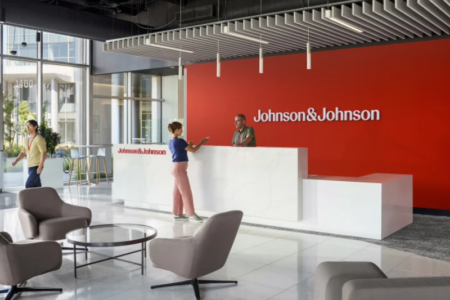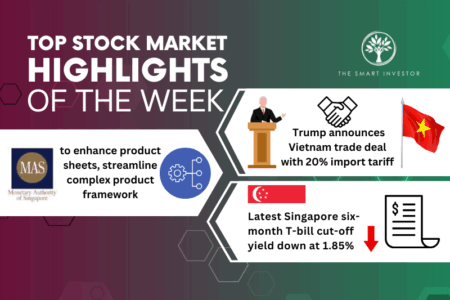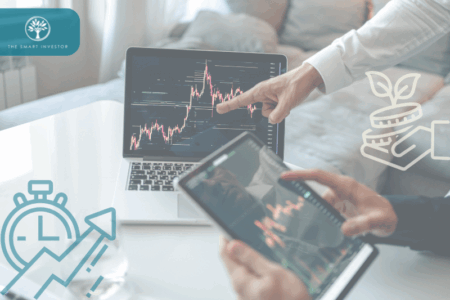For many investors, 2020 was a rollercoaster ride.
From the devastating market crash to the intriguing K-shaped recovery that followed, there were plenty of heart-stopping events to reflect upon.
As the dust begins to settle, investors will find a new set of megatrends rising from the rubble that promise to redefine the future of investing.
One of these trends is sustainable investing.
Sustainable investing is an investment theme that has been gaining traction in the last few years.
More than ever, investors are placing emphasis on traits such as corporate social responsibility, transparency and accountability.
According to Bloomberg, investments in sustainability-themed exchange-traded funds (ETFs) more than doubled in 2020.
Sustainable investing
Sometimes referred to as SRI (sustainable, responsible, impact) investing, sustainable investing is a broad term that refers to investing in companies that strive to make the world a better place.
There are numerous ways companies can improve its sustainability rating.
These include: reducing carbon footprint, promoting equal employment opportunity, fair human rights practices, management diversity and others.
This investing style allows investors to invest in a way that aligns with their personal values and priorities.
They can put their money in places that promote a benefit to the wider society, on top of generating a return.
Additionally, investing sustainably need not come as a compromise to healthy returns.
In fact, a company’s sustainability rating can also be used to assess a company’s long-term risk.
Firms who have identified their own risks can take steps to manage and mitigate them earlier, reducing the risk that sustainability concerns will affect financial performance in the future.
Corporate leadership that prioritizes sustainability and social responsibility are more likely to be forward-looking, rather than focused on chasing short-term profits.
ESG ratings
The most common set of standards to rate a company’s sustainability are its environmental, social and governance (ESG) scores.
Environmental standards can include a company’s commitment to tackle climate change, consumption of natural resources, pollution, and compliance with environmental regulations.
Social criteria refer to the company’s impact on society and its stakeholders.
Key aspects include diverse and inclusive hiring policies, regard for employee health and safety, and community volunteering activities.
The ‘G’, or governance, has come sharply into focus in the last few months.
Governance includes factors such as executive compensation, management structure, and corporate behaviours such as corruption, tax strategy and political lobbying.
Together, they form a set of factors that sustainable investors consider when making investments, in addition to traditional financial metrics.
Sustainalytics
Sustainalytics is one of the two rating providers that Singapore Exchange Limited (SGX: S68) partners with to rate stocks listed in Singapore.
Owned by Morningstar (NASDAQ: MORN), Sustainalytics is a global leader in ESG research and ratings.
It uses a rules-based approach to rate companies based on their exposure and management of industry-specific ESG risks.
An ESG risk rating is assigned to each company, which are then categorized into five categories, from “Negligible” to “Severe” risk.
Sustainalytics’ methodology allows investors to compare the ESG performance of companies within industries and also across various markets in an easy and expedient manner.
Based on the latest update, the companies on SGX with the lowest ESG risk exposure include City Developments Limited (SGX: C09), Venture Corporation Limited (SGX: V03) and Mapletree Commercial Trust (SGX: N2IU).
MSCI ESG ratings
The second rating provider that SGX partnered with is MSCI (NYSE: MSCI), previously known as Morgan Stanley Capital International.
MSCI is an investment research firm that has strong expertise in data and technology, and is best known for its list of stock market indices.
MSCI’s ESG rating measures a company’s resilience to long-term, industry-related ESG risks, as well as its ability to manage those risks relative to its peers.
Leaders and laggards of each industry are identified and given a rating between AAA and CCC.
On the SGX, only CityDev and Keppel Corporation Limited (SGX: BN4) have the maximum ‘AAA’ rating.
Want to ride the stock market recovery? Download your FREE report: 3 Stocks I will buy in 2021! It comes with a bonus 3 trends for 2021, so you will be well equipped to ride the stock market recovery in 2021. Click HERE to download now!
Follow us on Facebook and Telegram for the latest investing news and analyses!
Disclosure: Herman Ng does not own shares in any of the companies mentioned.




